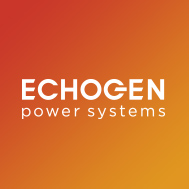Echogen Power Systems, a developer behind a recently announced waste-heat-to-energy project in Alberta, is working to build out its project pipeline as interest in the sector grows, an executive at the firm said.
The waste-heat-to-energy industry in the US has received increased attention since Congress included an investment tax credit for waste energy recovery property, according to Echogen Chief Technology Officer Timothy Held.
Echogen’s technology is being used in Siemens Energy and TC Energy’s pilot waste-heat-to-energy facility in Alberta, Canada. Siemens announced earlier this month that it has signed an agreement with Calgary-based TC Energy (formerly TransCanada) to develop a waste-heat-to-energy installation at a gas-fired turbine. The pilot project’s capacity is up to 9 MW, according to a Siemens spokesperson.
The firms plan to develop an additional 25 to 30 projects together in Western Canada totaling roughly 300 MW, a TC Energy spokesperson said.
In addition to these projects, Echogen is also in discussions to build a waste-heat-to-energy facility at a steel manufacturing plant in the northern US, Held told SparkSpread.
The December COVID-19 relief package included a new 26% investment tax credit for waste energy recovery property, which includes heat-to-power projects. Echogen, which was founded in 2007 by current CEO Philip Brennan, has been advocating for such an incentive for as long as the company has existed, according to Held.
“That has opened up a lot more interest to look at this kind of technology than we saw even two months ago,” Held said. “There are opportunities out there today that right now the capital investment hurdle is probably preventing people from looking seriously at.”
Echogen, headquartered in Akron, Ohio, focuses on projects in which leftover heat is converted into energy, Held explained. On a 22 MW plant, for example, there may be another 40 MW of heat in the exhaust, which can be converted into around 8 MW of additional energy.
Whether capturing this heat and converting it into energy makes economic sense depends on several factors, Held said, including the price of power and the proximity to an offtaker. The levelized cost of energy for a waste-heat-to-power project ranges from USD 30 per MWh for smaller projects to between USD 15-USD 20 per MWh for larger projects.
“There are a lot of markets where that makes sense,” Held said. “There are some where it doesn't."

